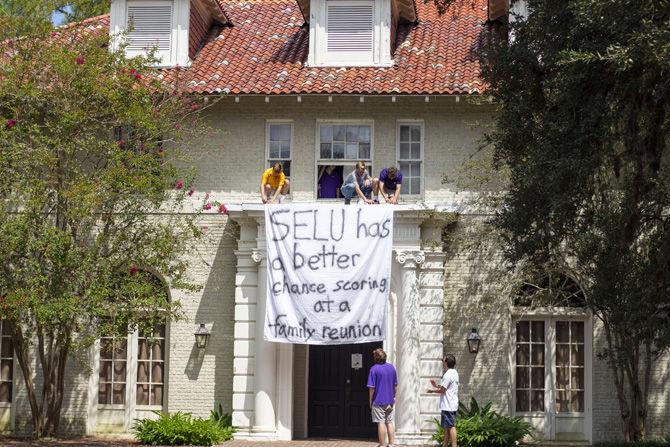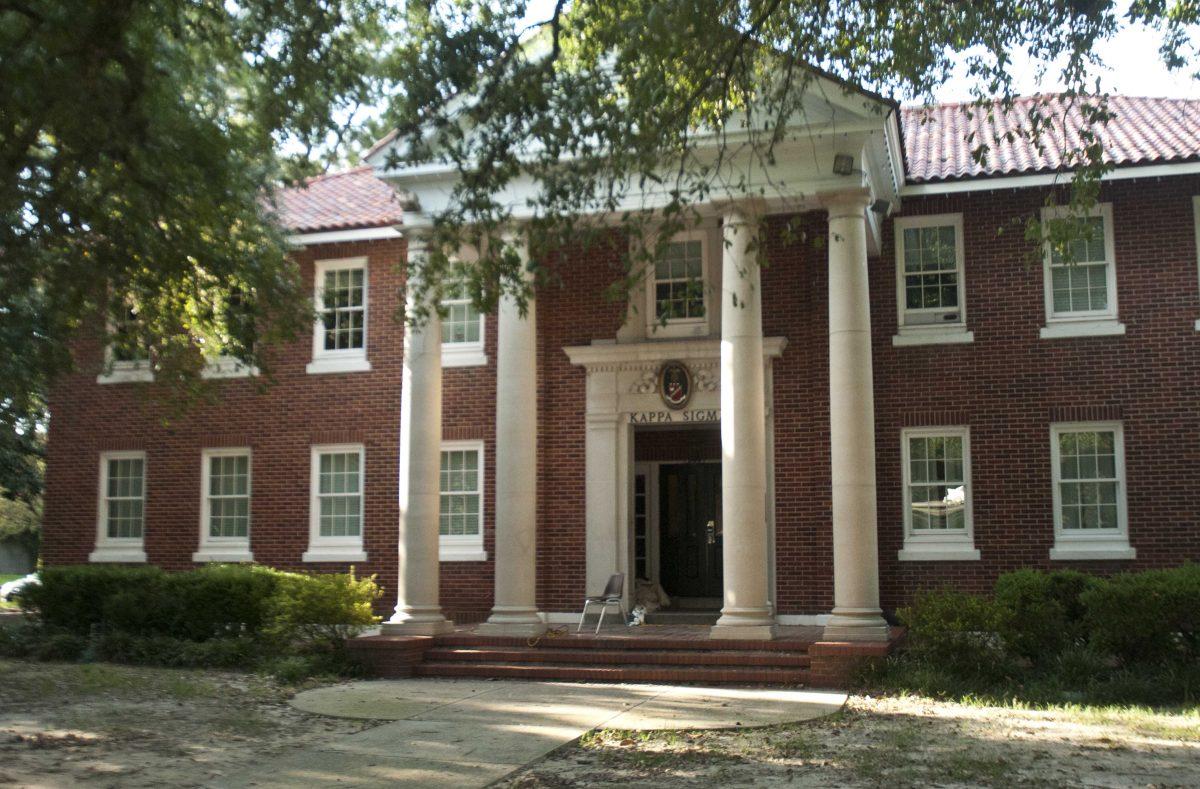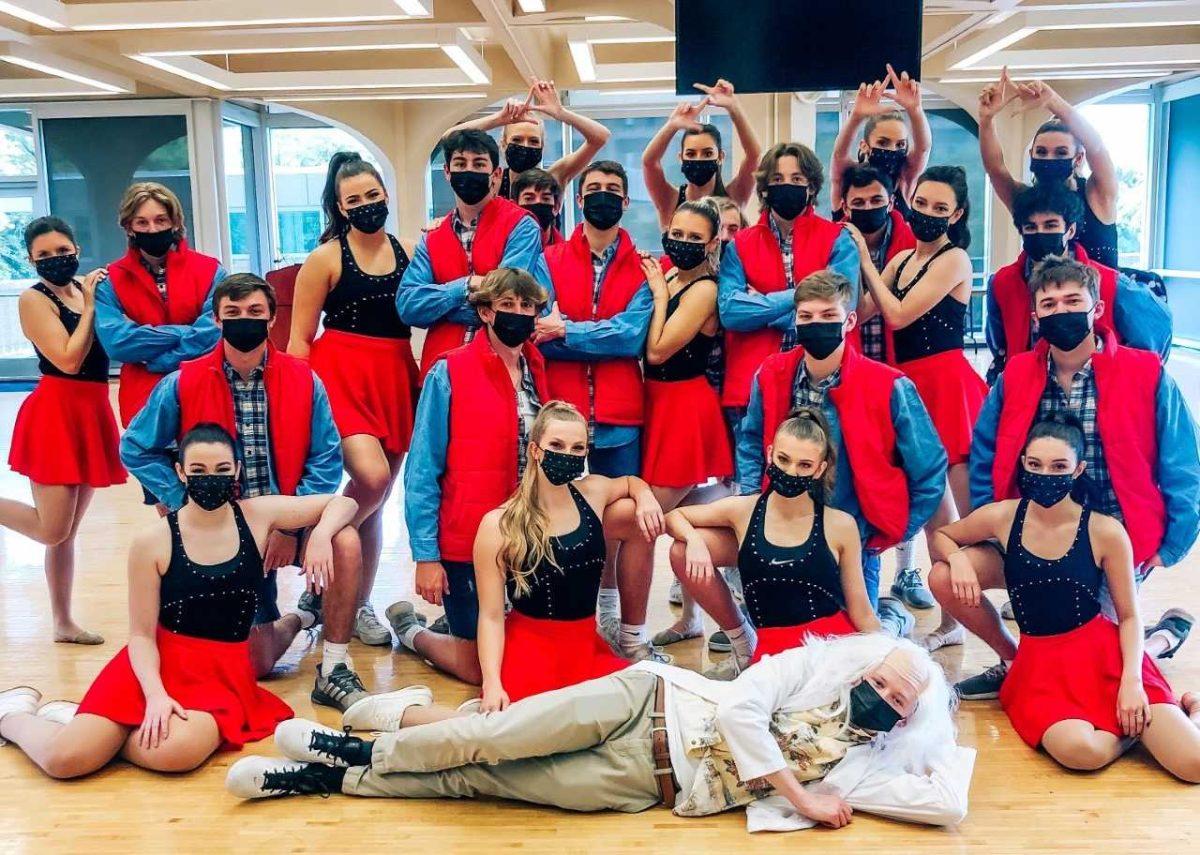The first tailgate of the 2018 football season has come and gone, and with it, Greek Life traditions.
For the first time in 13 years, Greek Life organizations aren’t allowed to tailgate on the Parade Ground. This policy is one of LSU President F. King Alexander’s Task Force on Greek Life recommendations. Greek organizations moved into their houses for tailgating, with police officers monitoring the situation and a ban on all common source alcohol. Student organizations were also affected by new tailgating regulations, which included having groups register their tents, stick to assigned areas and disposing of tailgating materials and tents before tailgating activities were finished. Greek organizations without a house are allowed on the Parade Ground.
On Sept. 8, the Parade Ground held around 1,000 students from various student organizations. LSU PD officers were stationed there, as well as in other main tailgating areas. According to LSU Dean of Students Mari Fuentes-Martin, there were no incidents that required medical transport, no fights and no major incidents.
“What I saw was a lot of collegiality, so people hanging out, having fun, loud music, the smell of burgers. It was that kind of stuff,” Fuentes-Martin said. “The community overall wanted to follow the rules and be good stewards of what we’re trying to do. We didn’t have any incidents, so that’s a good sign for me. I think it was a good trial run.”
Greek tailgates were temporarily moved off the Parade Ground in September 2017 following the hazing death of Max Gruver. Student organizations were allowed to return to the Parade Ground the following week, but with much stricter guidelines.
Prior to Saturday, many Residential Life programs held mock tailgates to prepare students, especially freshmen, for the tailgating atmosphere. Alcohol and safety training were done in about five residence halls. Students were also given tips and information on how to prepare for the new regulations, including pamphlets about alcohol poisoning and the lighthouse program.
Kathryn Saichuk, assistant director of Wellness and Health Promotion at the Student Health Center, said that she was really excited about the mock tailgates, and that she hoped to get through to the students.
“Ideally, we don’t want anybody to drink, but we just want them to understand that if you make that choice to drink, there’s lots of things you can do to protect your body, to protect your safety and to be more knowledgeable before you consume substance, whether it be alcohol or anything else,” Saichuk said. “Everybody’s here to have a little fun, but we also want everybody to be safe.”
Associate Dean of Students and Director of Greek Life Angela Guillory was satisfied with how the tailgating went Saturday, and specifically praised the behavior of the Greek organizations.
“There’s just been a lot of willingness to cooperate, to step up to the plate, to be compliant and hope that it will all work out,” Guillory said.
Many University students seemed upset about the stricter guidelines and increased scrutiny, saying that they caused confusion and were less fun. Business freshman Alex Guidry, a Delta Kappa Epsilon fraternity pledge, said splitting the fraternities up into their houses kept them from interacting with each other.
“LSU tailgating is a lot different than it used to be,” Guidry said. “It’s not as fun because everything’s so spread out. It’s almost like the different fraternities can’t come together like they used to, and chill with each other. We’re not allowed to leave our spot. I think that they should totally bring the Parade Ground back. Keep the same regulations – beer and wine, that’s fine. But just bring back the Parade Ground.”
Jake Chapman, a 2007 alumnus and former fraternity member, said he would’ve been thrilled to tailgate in the Greek houses. His fraternity was affected by the 2003 policy that banned Greeks from tailgating in their houses and forced them out onto the Parade Ground.
“It’s kind of weird to go fullcircle, that they now want them back in the houses,” Chapman said. “It makes more sense – you paid for a house, you might as well use it. It’s better, if we’d [had] the option then and the money then, we’d rather be in the house.”
Other University students said that while they accepted the reasoning, their tailgating experiences were worsened by the regulations, especially the newly-increased scrutiny.
After getting stopped and checked by police officers, communications studies senior Kayleigh Spilger was frustrated, saying it made more sense from a security standpoint to have everyone in one concentrated area.
“We can’t find anyone and we’re trekking miles just to get to where our friends are, when normally we’re all in one designated area on the Parade Ground,” Spilger said.
Although students seemed annoyed by the changes, non-student tailgaters haven’t seen much of a difference.
Donald Fontenot, a Baton Rouge resident who has been tailgating for 20 years, never even heard about the new regulations, saying his experience was the same as always.
“Every year, everything, every game,” Fontenot said. “Keep it going and less restrictions on public access to it, and you’ll see it stay what it is.”
Ariel DeVille, a Baton Rouge resident tailgating in front of a quiet Greek Row, said that while she wished the Greeks could tailgate openly, she thought tailgating culture would remain unchanged.
“We’ve been out here for a couple of years and we haven’t seen a lot of significant changes,” DeVille said. “It’s sad to see that some of the tailgates have to be in their fraternity houses, but I don’t think it will change the tailgate atmosphere. I think everyone’s here to stay, to have a good time.”








